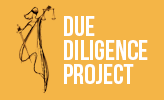Our Approach

Working Together to Bridge Policy with Practice
The Due Diligence Project works to bridge policy with practice by ensuring that policies are not only developed but also effectively implemented. This involves translating policy frameworks into actionable steps that address real-world challenges. It requires continuous collaboration between policymakers, implementing mechanisms and communities to ensure meaningful access and application in everyday life.
- Expanding knowledge through research
Expanding knowledge on violence against women is essential for creating effective solutions. Through cutting-edge research, the Due Diligence Project explores new insights into the causes, impact, and prevention of gender-based violence. This research informs policies and programs, helping to fill gaps in understanding and drive meaningful change for women’s safety and rights.
- Influencing law and policy
Law and policy play a crucial role in ending violence against women. The Due Diligence Project provides technical assistance to the development comprehensive laws and actionable policies that also addresses the causes of gender-based violence against women—like inequality and discrimination—and ensure long-term change. When laws are enforced and policies put into action, they send a clear message: violence will not be tolerated.
- Training and capacity development
The Due Diligence Project provides technical support and training on gender equality, intersections of gender discrimination, law and cultural-social norms, violence against women and the human rights to –
- judges, judicial officers and prosecutors
- judicial administration on setting up specialized VAW courts and procedures
- law enforcement and health professional on multi-sectoral approach and integrated services to survivors
- parliamentarians and human rights mechanisms
- community and faith leaders
- civil society
- schools, colleges and universities
- Collaborative engagement
The Due Diligence Project works with global and regional groups like UN Women, the OAS, and ASEAN to advocate for better policies on women’s rights. Our work has been highlighted in reports by the UN and its agencies/experts and Multilateral Development Banks, helping shape international conversations on women’s human rights


Intergovernmental
The Due Diligence Project engages with and collaborates with inter-governmental and multilateral organizations (e.g. Multilateral Development Banks) including treaty bodies (e.g. Expert Committee of the Convention on the Elimination of Discrimination against Women); regional implementing secretariats and mechanisms such as the Organization of the Americas (Convention of Belem do Para) as well as Association of South East Asian Nations (ASEAN) commissions on human rights (AICHR) and on women and children (ACWC). Our work has been cited, inter alia, in publications and statements issued by UN Women, the Office of the High Commissioner for Human Rights, the OAS, Multilateral Development Banks as well as other international and regional experts (e.g. Special Procedures mandate holders).

International
The Due Diligence Project has from its inception collaborated with academics and educational institutions to develop, sharpen and refine its objectives, activities and strategies. This includes engaging academic consultants.
The Due Diligence Project has from its inception collaborated with academics and educational institutions to develop, sharpen and refine its objectives, activities and strategies. This includes engaging academic consultants.
For the purposes of achieving a multiplier effect, the Due Diligence Project trains human rights defenders and advocates on engaging and partnering with States, industry actors and inter-governmental bodies to eliminate violence against women and girls and assess the efficacy of their programs and policies. It also, through its directors, conducts courses and teaches human rights, social and gender justice in schools, colleges and universities.

National
With Government Officials
The Due Diligence Project develops modules to train and engage with governments at the national levels (law enforcement, health officials, human rights and women’s rights mechanisms, politicians) as well as civil society alike on instrumentalizing and integrating human rights into their strategies, policies and implementation initiatives. It has done this in countries across Africa, Asia, Europe, Latin America and the Caribbean, Middle East and North America.
Judicial Application of Human Rights
Implementation of the State’s international obligations can only be effectively implemented if judges effectively apply human rights standards and norms. The Due Diligence Project developed training modules to train judges on gender equality, intersections of gender discrimination, law and cultural-social norms, violence against women and the human rights structure within the international system and Constitutional protections of fundamental rights.
Project Director, Dr. Zarizana Aziz, has trained over a thousand judges on applying human rights standards and norms and implementation of international good practices in cases on discrimination and violence against women and provided technical assistance to establish and effectively maintain gender-based violence against women specialized courts. She also edited a Court Companion on Gender Based Violence Cases (Pakistan).

Engaging Community Leaders
Societal acceptance or rejection of discrimination and violence against women is shaped by those who are in positions of power and influence. Structural discrimination and violence negatively affects women and girls in the family, community, national and international spheres.
Effective engagement with community leaders goes beyond specifically targeting violence and discrimination against women and girls. It also aims to transform social perceptions, attitudes and behaviors that cause, support and tolerate discrimination. Affirmative change in social attitudes and behaviour is best achieved when women’s human rights issues are integrated in the regional, cultural and religious value systems.
Supporting and Strengthening Civil Society
Civil society organizations are key to driving real change—fighting for gender equality, ending violence against women, supporting survivors, and empowering communities. The Due Diligence Project partners with and strengthens civil society through research, training, and workshops to create smart partnerships with governments. This collaboration helps ensure State measures such as laws, policies and programs work for everyone, creating stronger, more inclusive societies where justice and equality prevail.
The Due Diligence Framework: State Accountability Framework for Eliminating Violence against Women
Learn How The Due Diligence Framework Can Help Eliminate Violence Against Women
Read Hereddproject2012@gmail.com
© 2025 The Due Diligence Project. All Rights Reserved.
